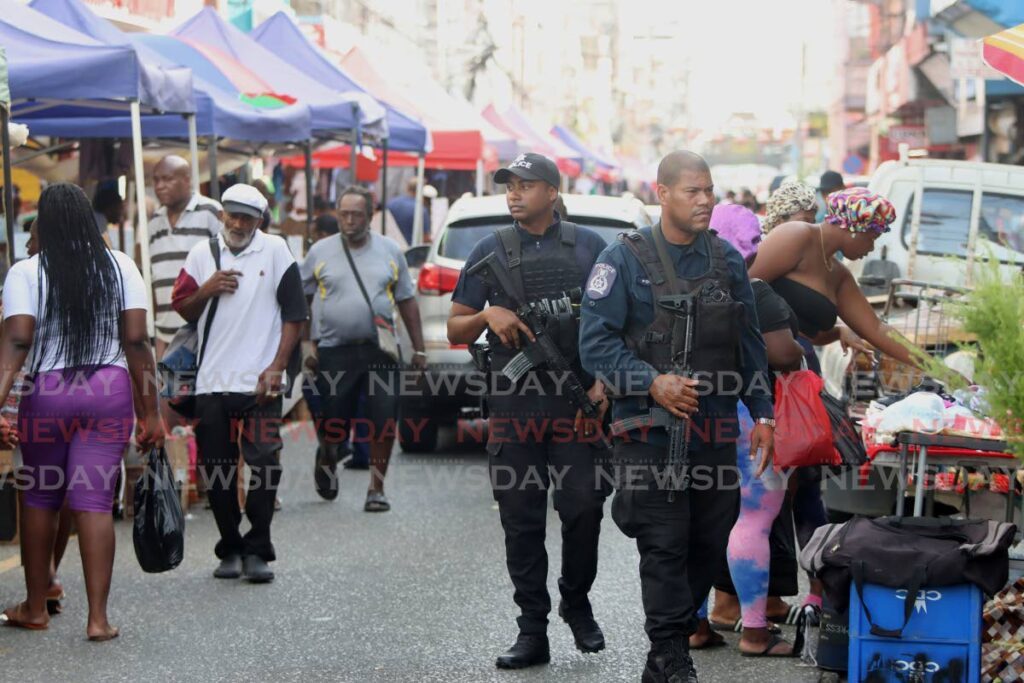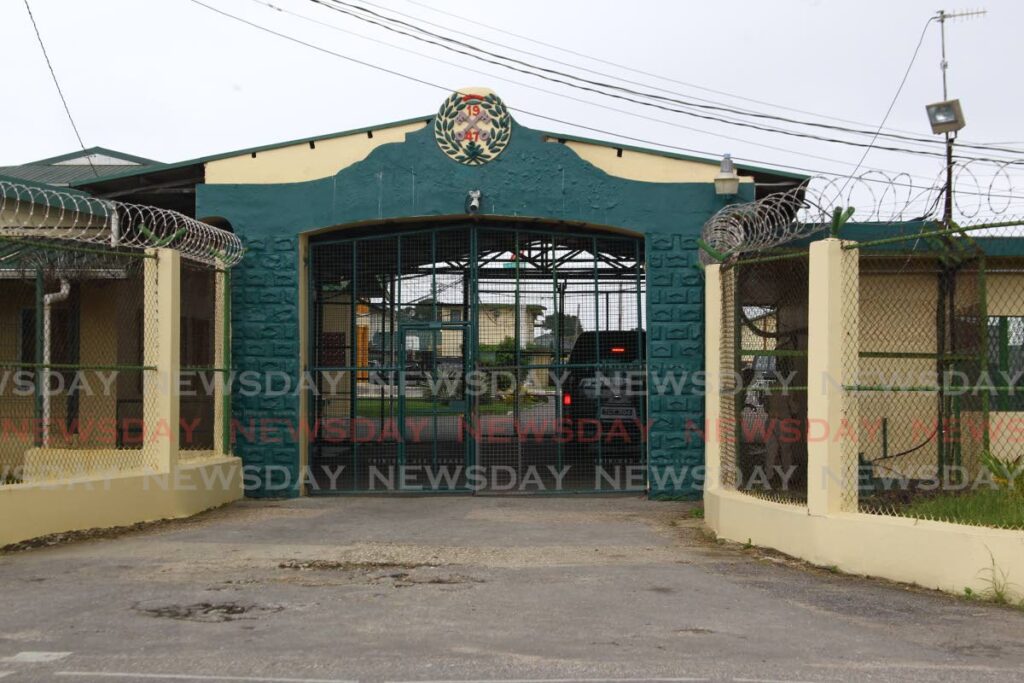Report: High public distrust of police

THE population has a high public distrust of the police and this fact is worsening the crime crisis, said a recent report by Parliament's Joint Select Committee (JSC) on National Security. This JSC is chaired by Keith Scotland.
The report also lamented that problems in the law courts and prison system also contribute to failings of the criminal justice system.
The report pointed out the pain felt by victims of crime and also by perpetrators, each with their own reasons to feel let down by the system.
"Our current laws often see prison and detention as the main solution to every criminal infraction. We may be incarcerating persons who pose no harm to society and consequently may be overburdening the prison system," the report said, quoting a comment by the Public Defenders Department.
The judiciary said a focus on imprisonment for offences including non-violent acts has hindered restorative solutions (aimed at repairing harm done) and may school offenders in worse crimes.
"The system provides little preventative care and tends to seek only to punish."
Saying a punitive approach may reflect TT's wider cultural perspective, the report said that was ineffective and had not led to positive perceptions or behaviours.
The report took aim at the police service.
"Recent years have seen a substantial increase in public distrust of the service, with topical discussions on its performance and competency exacerbated by incidences of police malpractice, unlawful conduct, corruption, and extra-judicial killings, all highly publicised."

Low trust levels
The report said the population has "a relatively low level of trust in the police."
It said 42 per cent trust the police, 59 per cent report a crime when a victim, and 67 per cent feel safe in their neighbourhood.
The report noted people's feelings based on their interactions with the police in 2022.
Ten percent were very satisfied, 18 per cent satisfied, 15 per cent neutral, 19 per cent dissatisfied, and 38 per cent very dissatisfied.
The report noted the effect of public distrust in the police.
"The lack of trust in the service also plays a significant role in the under-reporting of crime. Serious crimes went unreported by 39 per cent of victims on a nationwide basis in 2015.
It lamented “most victims choosing not to report based on their feelings about the police service, including inability to trust the police, police apathy and lack of confidence in police to pursue the matter appropriately.
"The lack of public trust has also negatively impacted public willingness to co-operate with the police service in other ways, including providing information and witness statements.
"Under-reporting not only discourages public confidence and lowers the public’s sense of security, but also can contribute to increases in crime and embolden criminality."
The report said people's fear of crime was topped by fears for a friend or family member (81 per cent) and being a victim of robbery (77 per cent).
It noted the number of murders per 100,000 citizens from 2015-2022 respectively as 31, 34, 36, 38, 39, 29, 32, and 44.
"Such figures do not inspire public confidence."
The report said global homicides have largely been decreasing in recent decades, but not in TT nor the Caribbean.
It then pointed out public dissatisfaction with trials. This was due to long delays before starting, trials lasting years, adjournments, lengthy remand times, unacceptable prison facilities, lack of rehabilitation programmes and insufficient evidence to prosecute.
"The public perception of the system is neither positive nor optimistic. Rather, it is pessimistic and disaffected.
"Compounding the negative perceptions is a general lack of clarity and understanding about the function of the system."
Challenges in justice system
Challenges facing the overall criminal justice system were low detection rate, forensic backlog, overcharging, under-use of plea bargaining, undertrained police prosecutors, high judicial case-load and a high recidivism rate. The report said 2022 saw 12,802 serious crimes reported, prosecutions begun in 4,066 cases, and convictions secured in 473 cases.
Considering figures for 2015-2022, the report said, "On average 36 per cent of reported crimes lead to prosecution and 5.7 per cent lead to convictions.
"These numbers appear dire on their face with only one third of crimes reported leading to prosecution."
The report said these numbers did not reflect the delays between the reporting of a crime, initiation of prosecution and eventual conviction.
"In other words, as the evidence below lays out, not only is the system ineffective, it takes an inordinate, and sometimes inhumane, length of time to arrive at these poor results."
Coupled with a high crime rate was a low detection rate, the report lamented. Backlogs at the forensic science centre have delayed police investigations.
The report highlighted operational problems in the court system. This included the non-appearance of police prosecutors, who also sought frequent adjournments to go to research a minor point of law which their level of legal training may not have equipped them to know. Often they are not trained to handle vulnerable witnesses such as children or rape victims.
The Law Association said, “Prisoners in the system who want to plead guilty will have to continue to wait over 12-15 months to get an application acknowledged and a prolonged period before he is actually sentenced.”
The Public Defenders Department lamented a lack of utilisation of plea bargaining and blamed it on a distrust and lack of awareness/acumen by accused individuals.
The report lamented staff at the Office of the Director of Public Prosecutions (DPP) were stuck on 2013 salaries, while facing a greatly increased workload.
"Between 2019-2023 the DPP’s office lost 25 employees, which equates to between 40 (and) 50 per cent of staff."
Citing the 2020-2021 annual report of the Judiciary, the report said, "Due to the slow pace of the judicial process, the time spent on remand in the majority of cases is in excess of five years."

Overcrowding in men's prison
The worst woes of men's prisons were overcrowding, remandees awaiting trial for six-eight years, poor facilities, including some use of slop pails, and aging infrastructure.
"These create significant challenges to the proper management of remanded inmates.”
Recent legislation on plea bargaining, electronic monitoring by ankle bracelet and Bail Act amendments had not translated into a drop in the number of remanded inmates, the report lamented.
Regarding recidivism, the report said 49 per cent of inmates had more than three prior incarcerations, 31 per cent had two-three, and 19 per cent had one.
Based on this, Newsday calculates 80 per cent are repeat offenders.
On rehabilitation, the report said remandees do not have equal access with convicted individuals to rehabilitation programmes, having earlier noted that many are on remand for more than five years.
Some prison conditions fall well below acceptable human-rights standards owing to overcrowding, inadequate sanitation, inadequate lighting and poor ventilation.
"The combination of lengthy periods on remand, deplorable conditions on remand and the inaccessibility of the full range of rehabilitation programmes offered to convicted prisoners create a particularly devastating challenge for remanded inmates.
"Moreover, there is the inherent risk that overcrowded conditions result in the co-mingling of remanded persons who may be first-time, non-violent offenders, with remanded persons who may be repeat and violent offenders."
A 2020 Inter American Development Bank (IDB) survey of inmates listed what they feared would be their biggest challenges upon release.
"Thirty eight per cent of inmates believe the biggest challenge faced on release is not finding a job. Twenty one per cent believe the stigma of being imprisoned is the biggest challenge, and ten per cent believe the inability to reconnect with family and friends is the biggest challenge. "These statistics provide a good indication of the primary areas of focus for prisoner reintegration."
Urging change, the report said "The problem is worsening.
"The murder rate has increased, gang and drug activity remains rampant and public confidence is decreasing."
Despite an extensive examination by national and international experts, making an array of recommendations, the system has not changed.
Some reports might have been ignored for not accounting for the cultural, political and socio-economic realities of TT, the report said.
"The inquiry has concluded that there is inertia in the system, caused at least in part by a lack of overall accountability, lack of public engagement and dialogue, and the challenges of introducing change in a punishment-focused culture.
"The lack of centralised accountability for a change process presents a barrier for those who are motivated and an excuse for those who are not."

Comments
"Report: High public distrust of police"